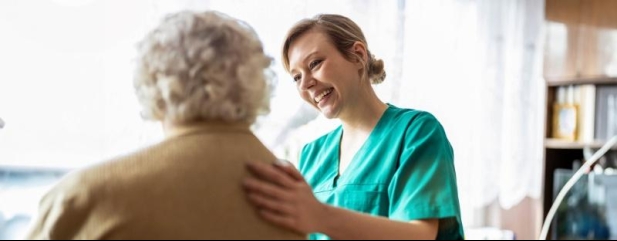Archived article
Please note that tax, investment, pension and ISA rules can change and the information and any views contained in this article may now be inaccurate.
Rental growth drives long-term income at Primary Health Properties

Primary Health Properties (PHP) 90p
Market cap: £1.2 billion
As the National Health Service continues to struggle under the weight of an ageing population and increased demand for treatment, resulting in growing waiting lists, there has never been a greater need for primary healthcare services outside of hospitals.
Primary Health Properties (PHP) is a UK real estate investment trust and a leading investor in modern, purpose-built primary care facilities.
The group owns the freeholds or long leaseholds of flexible modern properties built specifically for the purpose of providing local primary care, and at the end of last year its portfolio was valued at £2.78 billion while its market cap was less than half that amount.
HOW DOES PHP OPERATE?
The UK population is growing, but at the same time it is ageing and more people are suffering more instances of chronic illness, particularly since the pandemic.
This means demand for health care is growing, affecting service provision, levels of patient care and patient outcomes.
Despite the roll-out of digital services like myGP, close to 70% of consultations are now face-to-face which is the same level as pre-Covid.
Yet a third of the NHS estate is obsolete and cannot cope with demand, added to which the Government strategy is to move services away from hospitals towards modern primary care premises.
By letting out its purpose-built modern properties on long-term leases, backed by secure underlying covenants where the majority of rental income is funded either directly or indirectly by a government body, PHP is able to generate a secure income and pays a progressively rising dividend.
HEALTHY FINANCIAL SITUATION
2023 marked the 28th year of the trust paying an increased dividend, which was once again fully covered by earnings thanks to a total property return of 3.5% as rental growth offset a decline in valuations.
The company doesn’t make speculative investments, and only invests in new facilities if they are accretive to earnings meaning it is disciplined with respect to its development pipeline.
It currently has over £320 million of cash and undrawn loan facilities which it can use to make acquisitions or invest in its existing portfolio, and after recently placing a 10-year note with a fixed rate of just under 4.2% to repay more expensive variable-rate borrowing – in order to finance expansion in Ireland – it has an average cost of debt of just 3.3%.
Some 97% of net debt is fixed or hedged for a weighted average period of just under seven years.
RECORD RENTAL GROWTH
The portfolio consisted of 514 properties as at the end of last year, with the majority in England and Wales, 40 in Scotland and 21 in Ireland, which is a new market for the group with plenty of potential to grow.
Occupancy is 99.3%, and with almost 90% of income coming from government bodies and upward-only rent revisions earnings visibility is extremely high.
In 2023 the firm generated rental income of £151 million, an increase of 4%, thanks to record rental growth with reviews generating £4 million of additional income, up from £3 million in 2022 and £2 million the year before that.
‘The strong rental growth has been reflected in our total property return, which was significantly ahead of the wider property market’, said chief executive Harry Hyman.
ANALYST VIEWS
House broker Peel Hunt flags PHP’s ‘super-secure income’ thanks to its almost 100% occupancy rate, upward-only rental revisions and the fact its rent roll is almost wholly government funded.
The analysts also point to the fact the shares are trading at multi-year lows, leaving the company on an undemanding 21% discount to NAV with an attractive 7.7% yield.
Jefferies describes PHP as ‘Dividend Royalty’ and also flags the low risk associated with its cash flows together with its low cost ratio, helped by falling input costs.
Important information:
These articles are provided by Shares magazine which is published by AJ Bell Media, a part of AJ Bell. Shares is not written by AJ Bell.
Shares is provided for your general information and use and is not a personal recommendation to invest. It is not intended to be relied upon by you in making or not making any investment decisions. The investments referred to in these articles will not be suitable for all investors. If in doubt please seek appropriate independent financial advice.
Investors acting on the information in these articles do so at their own risk and AJ Bell Media and its staff do not accept liability for losses suffered by investors as a result of their investment decisions.
Issue contents
Editor's View
Feature
Great Ideas
News
- Indivior enjoys a strong recovery as it targets primary US listing
- Halfords skids lower on weak demand and wet weather woe
- Is Adobe primed for an upside surprise?
- Competitive pressures are piling up for Pets at Home
- Will the Reddit initial public offering live up to investors’ hopes?
- Budget 2024: British ISA launched, booze duty freeze lifts pub stocks
 magazine
magazine








